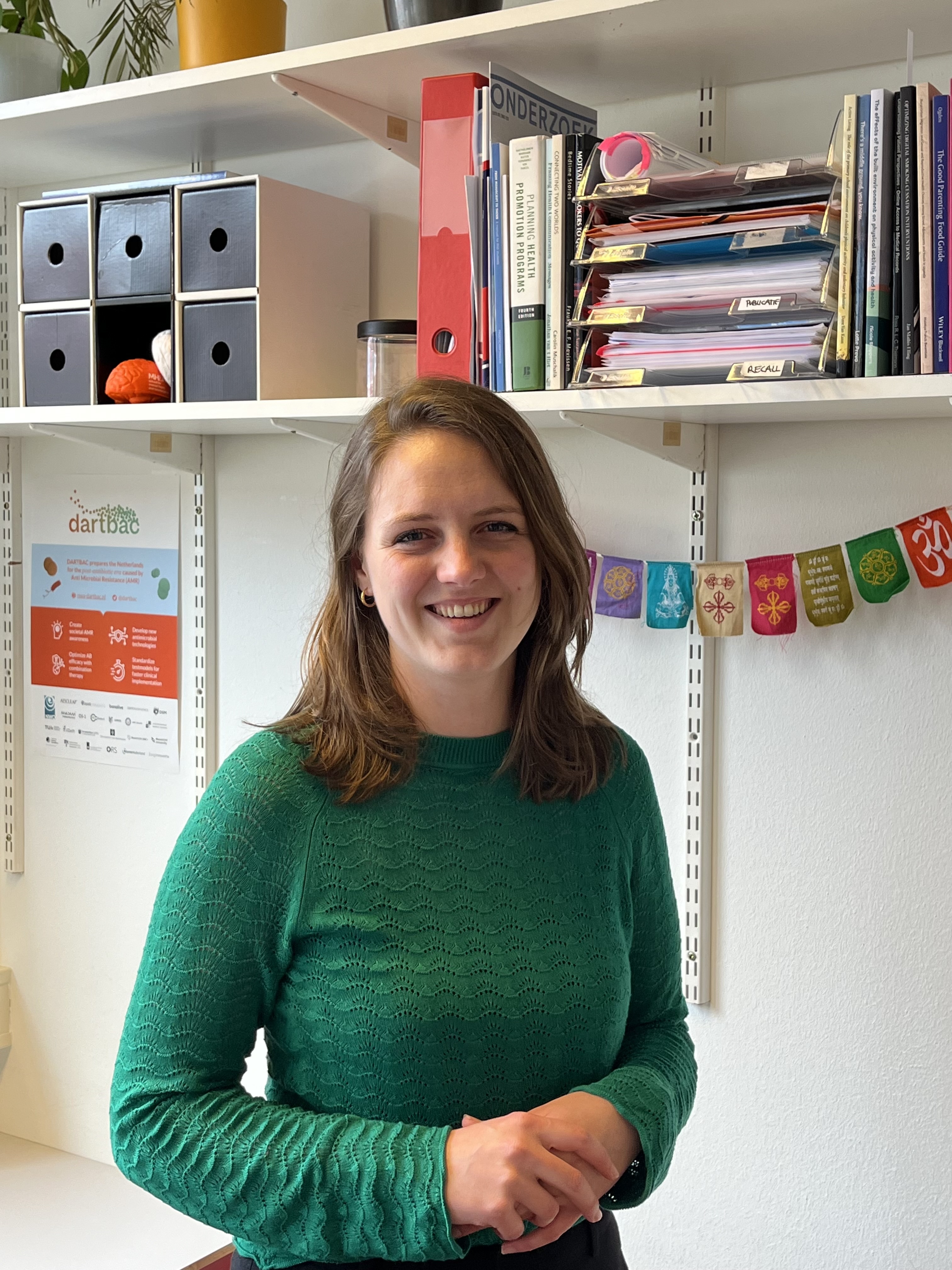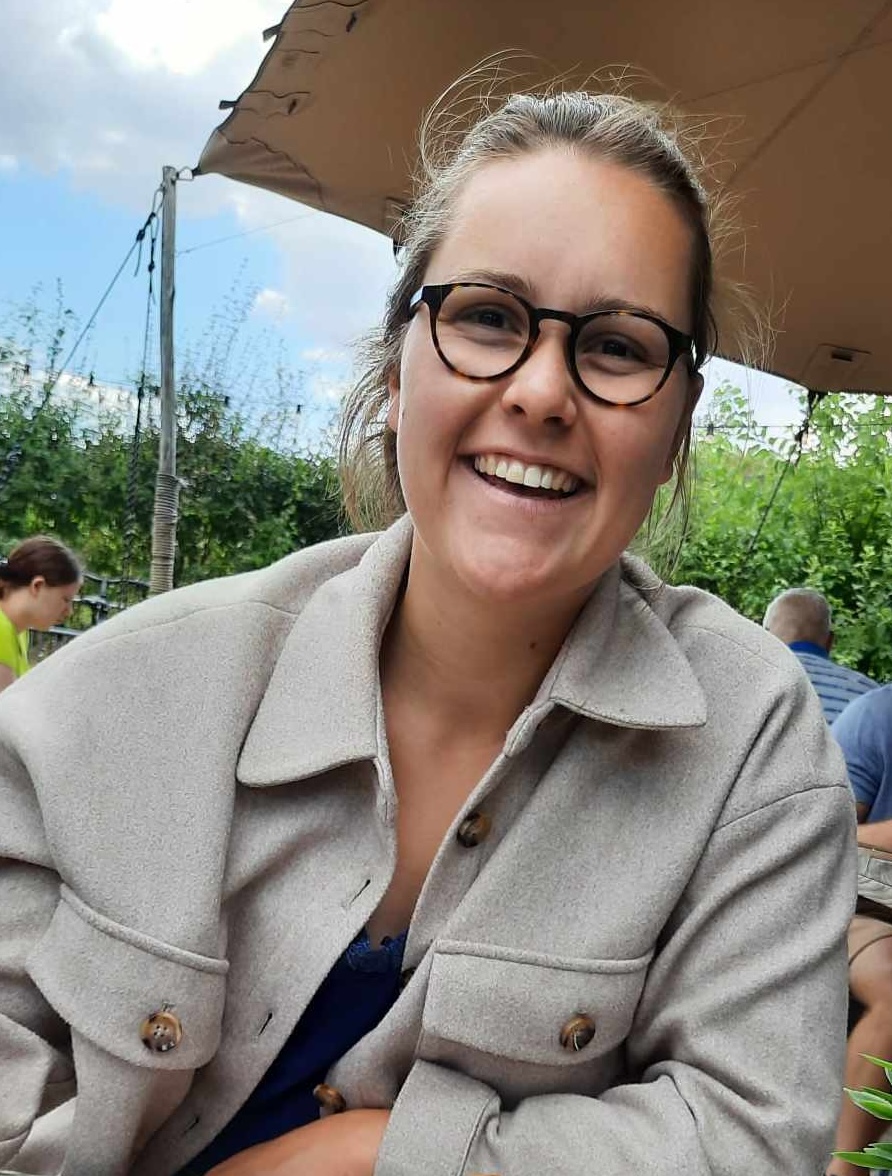One-of-a-kind PhD defence
Last Friday, the final PhD defence for the foreseeable future was held in the Minderbroedersberg. Now that the government has banned group meetings and events until 1 June, even the slimmed-down version with a maximum of 30 attendees has been scrapped. PhD defences will be postponed or, alternatively, held online. Just in the nick of time, Sanne Schreurs obtained her PhD cum laude for her research on the selection of students for the Medicine programme in Maastricht. Her work, supervised by professor of Implementation of Educational Innovations Mirjam oude Egbrink, shows that the selection procedure predicts study success and results in better medical graduates. What was it like to obtain a doctorate under these extraordinary circumstances?
This article is part of 'We're Open', a series of stories about the UM community’s many activities during the coronavirus pandemic.

“It was very strange. Only two of my examiners were actually in the room”, Schreurs says via Zoom. “The other four participated through video linkup. The advantage of having fewer examiners physically present was that I could invite more people. My parents, family and a few colleagues were there. Many people came from far away and had already booked hotels, so I was just happy the defence went ahead at all. Everything went well, although at times the examiners were difficult to hear.”
“I thought you did well to understand everything, sometimes I couldn’t follow at all”, Oude Egbrink chimes in. “Sanne was very much in the flow. While the first examiner was questioning her, the technical assistant was still trying to get all examiners on the screen, but she just carried on undeterred. Personally I caught very few of the questions from that first examiner. But everything went well, fortunately. Entering the hall with the committee was a strange experience: so few people and all sitting so far apart. It looked like a school exam. Although when it was time to congratulate Sanne, it was hard for people to keep their distance.”
Congratulations
Schreurs laughs. “Of course my mother had to hug me”, she says. “But I’ve been seeing a lot of my family and my best friend, who was one of my paranymphs, so there wasn’t much point in steering clear of them. There were also congratulations from an appropriate distance. A colleague had made a sort of pole measuring one and a half metres with presents attached to it, and I got lots of foot bumps. One of my paranymphs had a cold and was only allowed to participate online. After the ceremony we sent everyone home and my boyfriend and I went to get some vlaai. On the way home to Ede we visited a few people. I wasn’t expecting cum laude at all. When I heard that, all I could do was stare at Mirjam with my mouth open.”
“From a metre and a half away, naturally”, says Oude Egbrink. “But it was very well deserved. After the assessment committee approves a cum laude, things can still go wrong with the defence. The beadle makes two degree certificates, one with and one without cum laude. But everyone was very pleased with Sanne’s defence. It was a great thing to experience – for the PhD team too.”

In her dissertation ‘Selection for medical school: The quest for validity’, Sanne Schreurs shows that the selection procedure used in Maastricht University’s Medicine programme predicts study success and probably results in better junior doctors. Read more about her research and the collaboration with her supervisor Mirjam oude Egbrink here.

What now?
Schreurs: “Until now I’d been completely focused on my PhD. Now I have some time off. We were supposed to go to Cologne, unfortunately. I’ve been working at UM since my PhD contract ended last July. I work with Faculty Development and Study Smart, a project by the FMHL and EDLAB that offers students strategies to learn more effectively. More and more faculties are implementing it.”
Oude Egbrink: “I’m at home, but I’ve never been so busy. I’m up to my eyeballs in emails and apps. I spend the whole day on Zoom, which in itself it works well, but it’s completely hectic. I have a daily crisis meeting with the management of our Institute for Education, then there are additional meetings with the education platform chaired by the rector. We can’t rule out the possibility that the corona crisis will result in study delays for some students, although we’re doing our best to minimise it. The blocks are up and running; tutorials and lectures are going well, as far as we’re hearing, but the problem lies in practicals and training sessions. You can’t just shift those online. Practising skills on each other or in a lab is impossible now, so we have to find a solution for that. The same goes for medical and other internships. And then there’s the matter of exams. For smaller programmes you can switch to essays, take-home exams or group presentations. Blackboard Collaborates is very good for this. But trying to make large exams for 300 to 400 bachelor’s students online, and making sure the marking will be manageable for teachers – that’s not easy. We don’t have all the answers yet. All being well, we’ll learn a great deal from this crisis. It’s forcing us to think about online education and alternatives. No doubt a lot of good and valuable ideas will ultimately come out of it. But right now, it’s chaos.”

Also read
-
Alisa moved from Moscow to the Netherlands at 17 years old to become a first-year Regenerative Medicine and Technology (RMT) bachelor’s student. Turns out Alisa’s adventurous spirit pushes her to brand-new things, such as the RMT bachelor’s programme and her hobby Tribal Fusion dancing.
-
In the upcoming months, the Faculty of Health, Medicine and Life Sciences will share tips on Instagram on how to live a healthier life. Not just a random collection, but tips based on actual research happening at our faculty. The brains behind this idea are Lieve Vonken and Gido Metz, PhD candidates...
-
Manon’s academic path led her to work on prevention and well-being at the workplace. A place where we spend most of our time. The master’s programme Occupational Health and Sustainable Work (OHSW) uncovered the interventions that companies and policymakers need to keep work sustainable. Her job as a...


